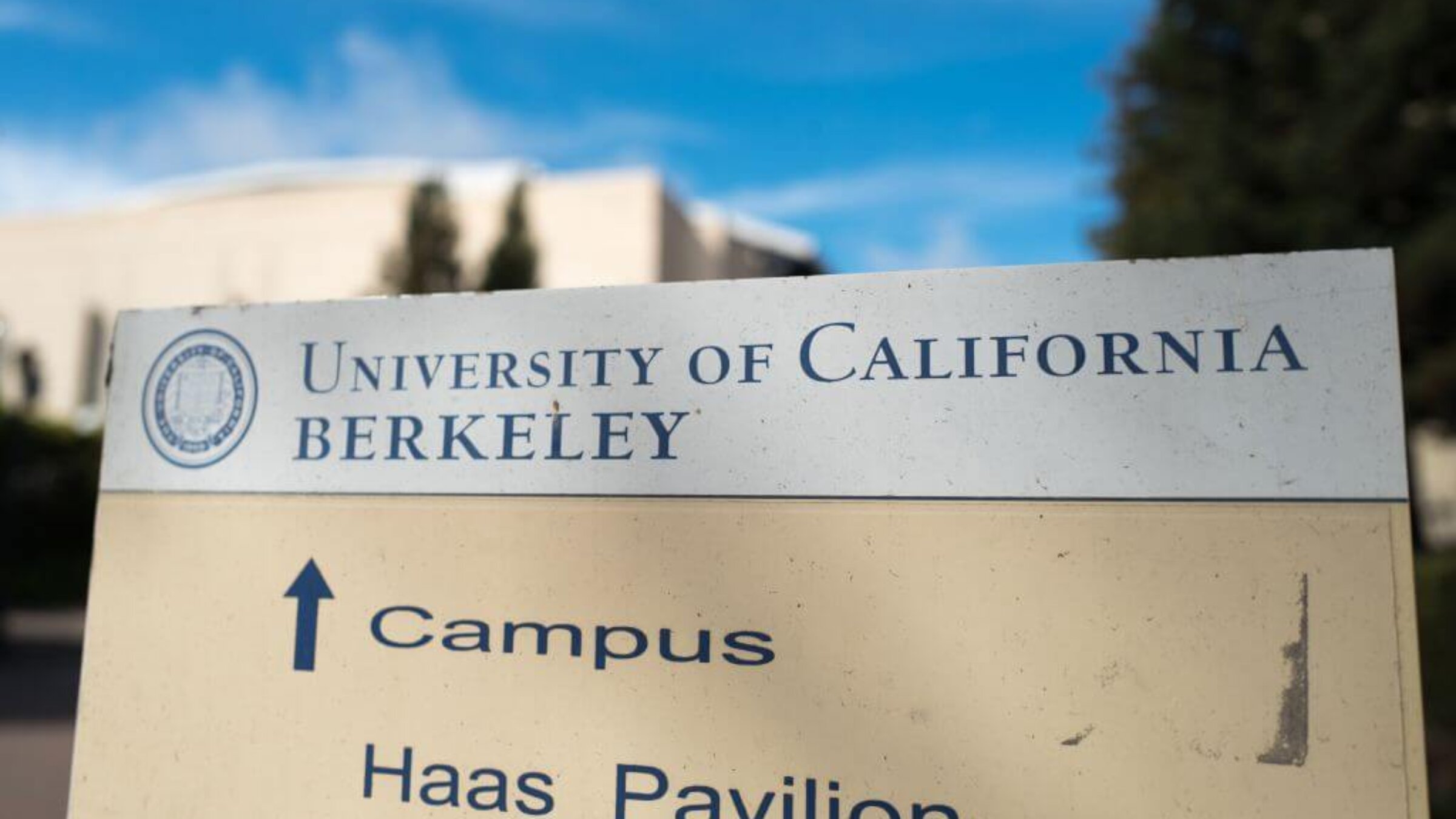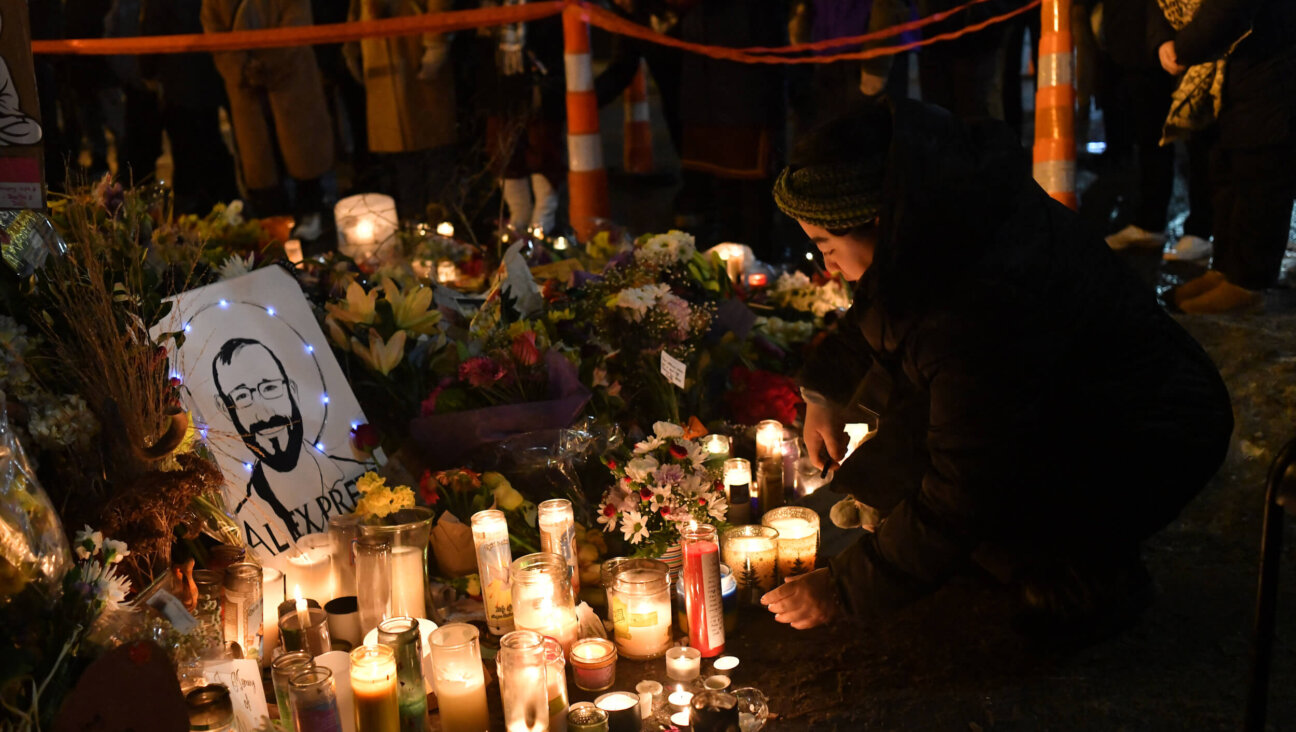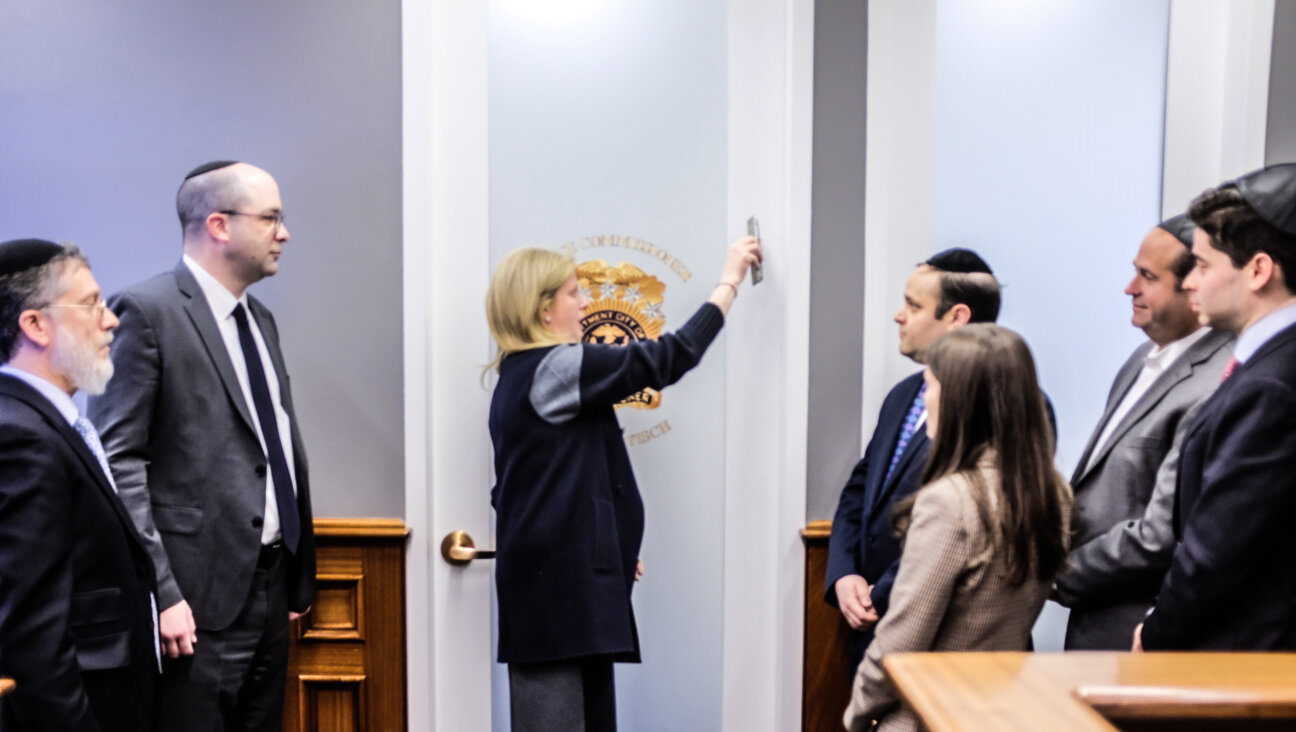UC Berkeley has many Jewish-filled ‘zones.’ If you want to support campus Jews, learn about them
Despite a decision by a small cohort to ban ‘Zionist speakers,’ Berkeley is not hostile to Jewish and Israeli students

It was shocking to realize that literally while Hamas terrorists were going house-to-house seeking to murder as many Jews as they could, some pro-Palestinian organizations on our own campus were gathering petition signatures for statements that celebrated these Hamas terrorists as freedom fighters, and rejected any critique of their actions. Photo by Smith Collection/Gado/Getty Images
(J. The Jewish News of Northern California) — Knesset Member Yossi Shain recently spent a week on the UC Berkeley campus. He lunched with several student groups, dined with faculty, spoke to political science students about the upcoming Israeli elections, gave a large public talk on his recent book and met with Jewish students at Berkeley Hillel.
His host was Berkeley’s Israel institute, housed in Berkeley’s Law School. This year alone, that institute, the Helen Diller Institute for Jewish Law and Israel Studies, is hosting 13 Israeli scholars who are offering 13 classes on Israel across campus, attracting hundreds of students. Jewish student life at Berkeley is thriving well beyond the classroom as well, with very successful Hillel and Chabad hubs and a wide range of active Jewish student organizations of every ilk.
The notion, then, that Berkeley is hostile to Israeli and Jewish speakers, let alone the idea — recently put forth in an incendiary op-ed in the Los Angeles Jewish Journal by Kenneth L. Marcus, a lawyer and academic who runs the Louis D. Brandeis Center for Human Rights Under Law — that the Berkeley law school has “Jewish-free zones” is preposterous. Panic-mongering around anti-Zionism on U.S. campuses serves no purpose, other than to offer free advertisement for extremist ideas, and to erode needlessly Jews’ sense of basic safety and security in places where Jewish life is actually thriving.
The decision by a small cohort of student groups to turn away “Zionist speakers” from their events is an outrage, denounced forcefully by Erwin Chemerinsky, the Jewish dean of Berkeley’s law school, first in J. and again in his response to Marcus in the Jewish Journal. It is nakedly discriminatory and is bound to make Jewish students feel excluded. But happily, just nine out of the more than 100 student groups at the law school chose to adopt such a bigoted course of action.
More broadly, student activism has no bearing on Berkeley’s deep institutional commitment to continue to teach growing numbers of classes in the fields of Jewish studies and Israel studies. The current Berkeley administration has done more than any of its predecessors to bolster that commitment. Rather than assail the administration for decisions made by student groups, our focus should be on educating students to do better.
Antisemitism and anti-Zionism are concerns on numerous college campuses worldwide. That is precisely why Berkeley has become a national leader in taking on these issues. The Chancellor’s Advisory Committee on Jewish Student Life and Campus Climate meets regularly with senior campus leaders to address challenges for students on the Berkeley campus, continue to bolster the infrastructure of Jewish student life, and increase awareness about the dangers of antisemitism.
In spring 2019, members of the committee founded the Berkeley Antisemitism Education Initiative (AEI). Spearheaded by faculty of the Center for Jewish Studies and the Helen Diller Institute for Jewish Law and Israel Studies, and Adam Naftalin-Kelman, the executive director of Berkeley Hillel, the AEI carries out regular programs and trainings for Berkeley students, staff and faculty, and has created multimedia presentations, including a widely praised anti-bias training film.
The AEI has become a model for many other programs across the country, and has had a substantial impact on our campus. This is in part because it has been strongly supported by senior administrators at Berkeley, from the chancellor on down, including the current leadership in our office of Diversity, Equity, and Inclusion.
During the past three and a half years, the AEI has hosted major speaker events, conducted trainings for groups of staff and students at Berkeley and other campuses, and we are consulted regularly by faculty and staff elsewhere trying to launch similar efforts on their own campuses. We are in the process of hiring a full-time program director for that Antisemitism Education Initiative right now. Soon we will be expanding our efforts to support underserved campuses across the state with a new effort called the California Antisemitism Project.
We do not deny that there are real problems and concerns on our campus. Indeed, those problems and concerns fueled the founding of the Antisemitism Education Initiative, and they continue to catalyze the considerable time and energy that several of us on campus spend in supporting antisemitism education and awareness.
But the reality is that Berkeley is blessed with good fortune in ways that most campuses are not: We have the support of our campus leadership across the board for Jewish students and combating antisemitism; we have a homegrown initiative in the latter area that has made discernible progress and does regular trainings on our campus; and we are a place where Jewish and Israeli students, staff and faculty are active and visible in myriad sectors of the campus. Five hundred Berkeley students of all backgrounds attend Jewish studies classes on our campus every year.
We understand the alarm that provocative incidents can generate, and we welcome the support of the wider Jewish community. But if one wants to support Jews at Berkeley, the best way to do so is not to make outlandish claims. Rather, we invite all concerned for Jewish life at Berkeley to reach out and support our efforts; you will find a robust set of existing institutions eager to work with you in combating antisemitism and lifting up Jewish and Israeli life and culture on our campus.
This article originally appeared in The Jewish News of Northern California and is reprinted with permission.















